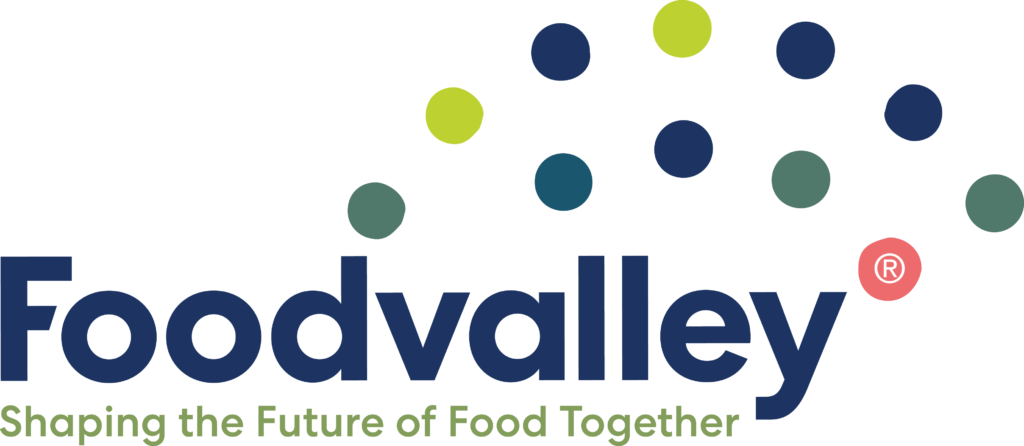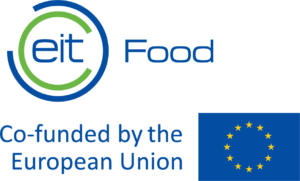Regenerative Innovation Portfolio
The Regenerative Innovation Portfolio is a collaboration platform bringing together a wide array of actors within Europe to action the critical systemic shifts we need to fix our broken food system. The Portfolio is established as a Food Innovation Hub Europe Initiative, brought to you by Foodvalley NL and EIT Food and supported by the Food Collective. It seeks to unlock new partnerships across the food and agriculture value chain bringing practical solutions that will enable viable short and long-term business models for farmers who want to transition towards regenerative agriculture.
Our mission is to remove system level barriers to adoption of regenerative agriculture by farmers and do so by demonstrating pathways to transformation at scale, boosting the supply and value of regeneratively produced products and delivered ecosystem services, while de-risking the farmers in the transition.
At this phase of Portfolio development we are inviting food and ag companies, investors, and impact funds to join us on this mission and invest in the Regenerative Innovation Portfolio as a core partner.
From wicked problems to a system transition
Our current agricultural production system is overshooting its limits. Over the past decades, agricultural policies and value system business models have overly focused on extracting value stabilizing and paying farmers solely for the quantity of food produced which resulted in an intensification of farming practices. Although this approach has helped to feed a growing global population cost-efficiently, intensive arable and livestock farming also produced severe negative environmental impacts. These negative effects include soil erosion, water quality degradation, climate change, biodiversity loss, harmful emissions and resource depletion. Meanwhile, under the current agricultural model the income of European farmers has not grown in proportion to the output, making it challenging for farmers to ensure a financially viable business model.
Soil degradation puts agricultural yields and their ability to regulate water, climate and nutrients at risk, making societies increasingly vulnerable to unexpected and extreme events. At the same time, production volumes need to be met to ensure food security for the European continent and avoid GHG emissions and biodiversity loss leakage to other regions of the world. Combining these tasks is tremendously complex and challenging, requiring a systemic shift where all stakeholders play an essential role and where they all need to collaborate from farm to fork.
Regenerative Agriculture, the Solution
We must transition towards an agricultural model that balances short-term productivity with long-term resilience of the land. By regenerating soil health and conserving and restoring agricultural ecosystems and evolving capacities of farming communities we create the conditions where both nature and societies can thrive and where farmer livelihoods are supported through new financial tools and solutions, viable new business models and functioning markets for sustainable products and ecosystem services.
Regenerative agriculture is an integrative farming approach that aims to restore natural processes and improve the overall resilience of our food and ag system. Regenerative agriculture focuses on measuring outcomes to steer change in farming practices and to foster long-term sustainability within the agricultural system both at the field and farm level, but also at regional level and higher up to ensure it tackles global challenges related to climate change and biodiversity loss.
Regenerative agriculture does not propose a fixed set of practices but aims at achieving outcomes for climate, biodiversity, soil, water and farmer livelihoods, and with that offers a larger ‘solution space’ which can be shaped based on the specific context within which farming communities produce food and can be aggregated to specific food landscapes. These practices can include mixed farming methods, minimised tillage, crop rotation, cover crops and the use of perennials (e.g. agroforestry).
Farmer-centered & landscape-based approach
Regenerative agriculture offers the most significant opportunities to help Europe address human and climate health, along with the financial well-being of farmers. However, a large-scale transition to this model requires a drastic, systemic transformation of how agriculture and the agrifood value system currently functions.
The Regenerative Innovation Portfolio aims to remove system level barriers to adoption of regenerative agriculture by farmers and do so by demonstrating pathways to transformation at scale, boosting the supply and value of regeneratively produced products and delivered ecosystem services, while de-risking the farmers in the transition.
The Portfolio aspires to do so by initiating various innovative cross-value chain initiatives on food landscape levels that work towards our mission statement through 3 main pillars,
- Regenerative demand and supply matching solutions,
- Solutions for ecosystem services, and
- Financial solutions that enable and de-risk transition for farmers.
Our approach centres around farmers. We aim to engage closely with farming communities at a landscape level to ensure their needs and perspectives are an integral part of the solutions designed within the Portfolio.
Our Portfolio aims to provide benefits as:
- A critical mass of farmers, land, commodity volumes and funding providing solutions at a scale relevant to demonstrate feasibility, viability and a variety of proven business models, including financial mechanisms supporting the transition to regenerative farming for different types of farmers and landscapes in Europe (arable, horticulture, livestock etc.).
- Solutions for measuring and compensating regenerative agriculture outcomes and ecosystem services provided.
- Financial solutions designed together with farmers aiming on de-risking innovative types of contracting, investments, interest rates etc.
Why the need to Partner?
To drive success, we rely on committed partners who share our vision and can contribute resources, knowledge, and expertise. They contribute to creating and implementing new cross-value chain collaborations and initiatives by committing resources in the form of funding, people and other resources to demonstrate solutions that drive and positively impact the Portfolio’s mission.
In return, we offer a range of benefits that will help accelerate your journey towards regenerative sourcing and supply system management, like creating scalable new sourcing models, sharing costs and knowledge, multiplying investments, and learning from other innovation initiatives.
Together, we can create a critical mass of farmers, land, commodity volumes, and funding to demonstrate solutions at a scale relevant to demonstrate feasibility and viability.
Our landscape-based solutions will contribute to meeting companies’ scope 3 emissions reduction, biodiversity, water and soil health goals. We will also provide new models to de-risk, incentivise, and reward farmers for their environmental performance, contributing positively to companies’ sourcing goals.
‘’Did you know that the top 10 FMCGs and retailers influence about 40% of the agricultural land in the EU and UK alone?’’
- Ellen Macarthur Foundation
Collaborative approach
Our collaborative approach also provides increased viability of otherwise prohibitively costly or inefficient solutions thanks to the complementary capabilities and resources of Portfolio partners. It will catalyse system level innovations that cannot be tackled or designed by one actor in the agri-food value system.
Sounds good? Then help us grow!
Regenerative agriculture holds great potential for transformative changes to our agri-food systems. Get in touch with Jolijn Zwart- van Kessel through jolijn.zwart-vankessel@foodvalley.nl or +31 6 82096140 to join one of the partner information events and/or receive our full Portfolio prospectus. Join us today as a partner on this journey towards a sustainable future for farming!
Established by


Supported by
